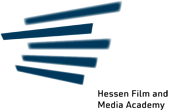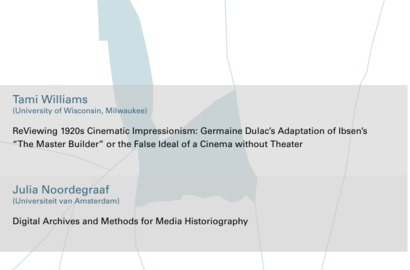Die Kracauer Lectures gingen in die Winterrunde!
Und zwar am Dienstag 18.12.2018, 18 Uhr
mit Tami Williams' lecture:
ReViewing
1920s Cinematic Impressionism: Germaine Dulac’s Adaptation of Ibsen’s
“The Master Builder” or the False Ideal of a Cinema without Theater
Belle
Époque Paris was the epicenter of a diverse reevaluation and
reconfiguration of suggestive forms that galvanized the art world,
bringing innovative musical compositions, exhilarating dance forms, new
pictorial models and widespread theatrical renovation. Germaine Dulac,
an early theater critic, feminist filmmaker, and pioneer of an
aesthetics of suggestion and sensation, made over 30 fiction films, many
marking new cinematic tendencies, from impressionist to abstract. A
look at the mid-1920s genesis and context of her unrealized film
adaptation of Ibsen’s iconic theater play, The Master Builder-1892,
renews our perspective of French cinematic impressionism.
Tami Williams is Associate Professor of Film Studies and English at the University of Wisconsin-Milwaukee.
Dienstag 15.01.2019, 18 Uhr
Julia Noordegraaf about:
Digital Archives and Methods for Media Historiography
Over
the past two decades, academic and cultural heritage institutions have
made significant progress in the digitization of audiovisual media
content and related materials, such as archival records, newspapers and
program guides. In correspondence to these digitization efforts, media
scholars have increasingly adopted software available for the creation
of databases with structured data on various aspects of the production,
distribution and reception contexts. And finally, various new tools have
been developed for exploring these new, digital collections and
analyzing the data contained in them, such as tools for text mining,
image analysis, geographical mapping or network visualization
Julia Noordegraaf is professor of Digital Heritage in the department of Media Studies at the University of Amsterdam.
Venue: Casino, Raum 1.811
Campus Westend, Goethe-Universität Frankfurt am Main




